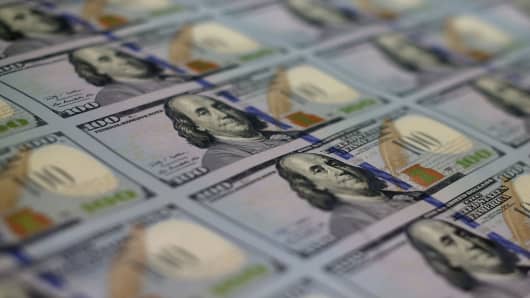The dollar fell to a one-month low against the yen on Monday and a five-week trough against a basket of currencies on expectations the Federal Reserve intends to keep interest rates low for some time.
Its losses underpinned the euro, which was holding near five-week highs as spreads between U.S. 10-year Treasury yields and German Bunds narrowed.
The spread widened to its highest since late 2006 earlier in July, helping the dollar. But with doubts growing over when the Fed will start withdrawing stimulus, the gap has narrowed. The Fed starts a two-day meeting on Tuesday.
The dollar index, which shed 1.2 percent last week for its third straight weekly loss, was trading 0.1 percent lower at 81.61 while dollar/yen was down 0.4 percent at 97.89, having fallen to 97.635 yen — its lowest since late June.
The euro was last flat at $1.3276 on EBS, not far from a five-week high of $1.32975 struck on Friday.
"Investors are trimming long dollar positions going into the Fed meeting as they are expecting the Fed not to just have a dovish bias but also a pledge to keep rates low," said Alvin Tan, currency strategist at Societe Generale. "But we think that tapering of stimulus will nonetheless start and that will be the overriding factor. Any dip in the dollar is a buying opportunity."
On Friday, U.S. payrolls report will be released with forecasts for 185,000 jobs being added in July and a dip in the jobless rate to 7.5 percent. A strong report would support the case for the Fed to start rolling back its stimulus in September and help the dollar.
"Scope for the unemployment rate to fall perhaps 0.2 percentage points in Friday's labour report might see the dollar end the week more positively," said Tom Levinson, currency strategist at ING.




